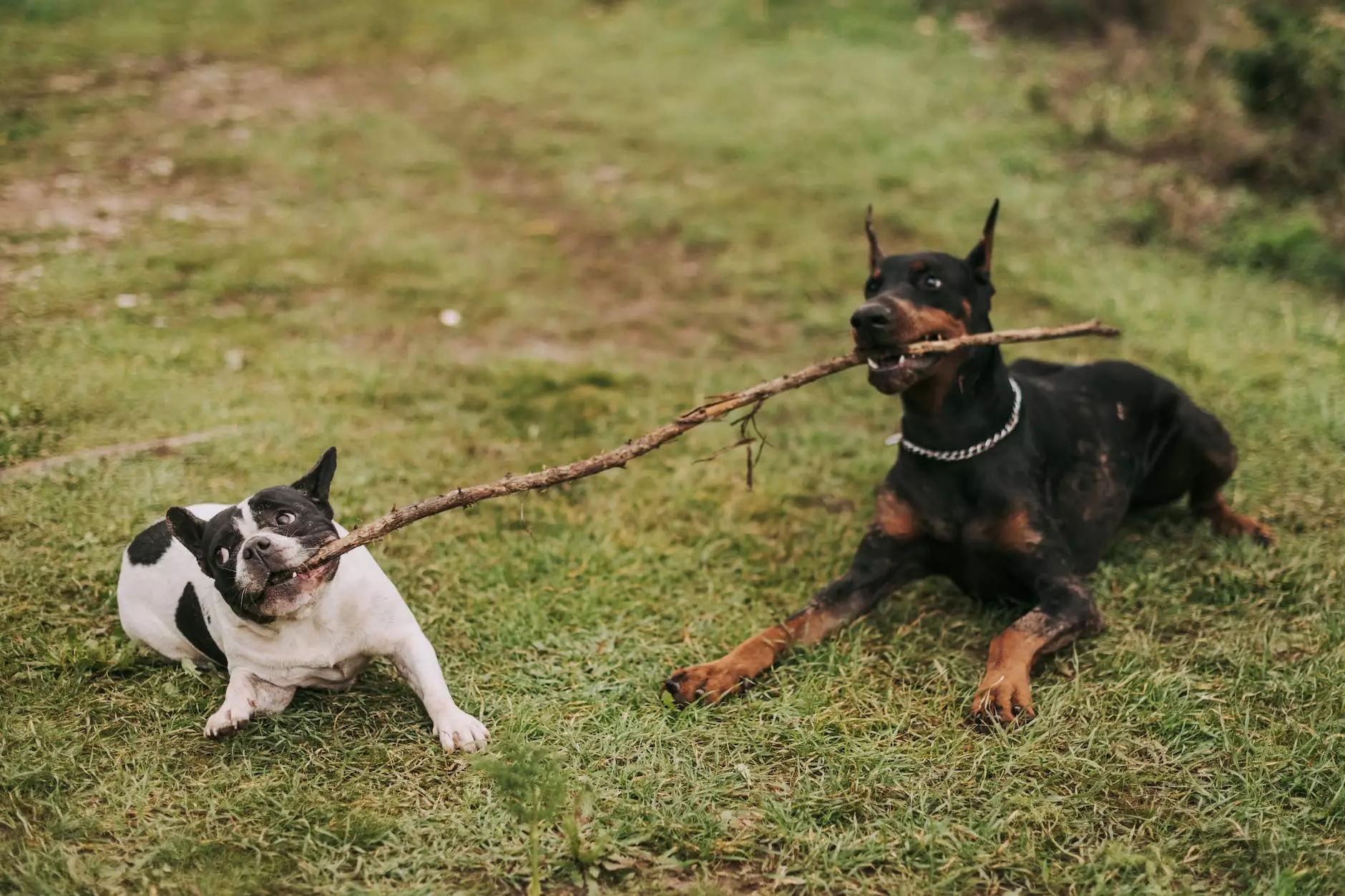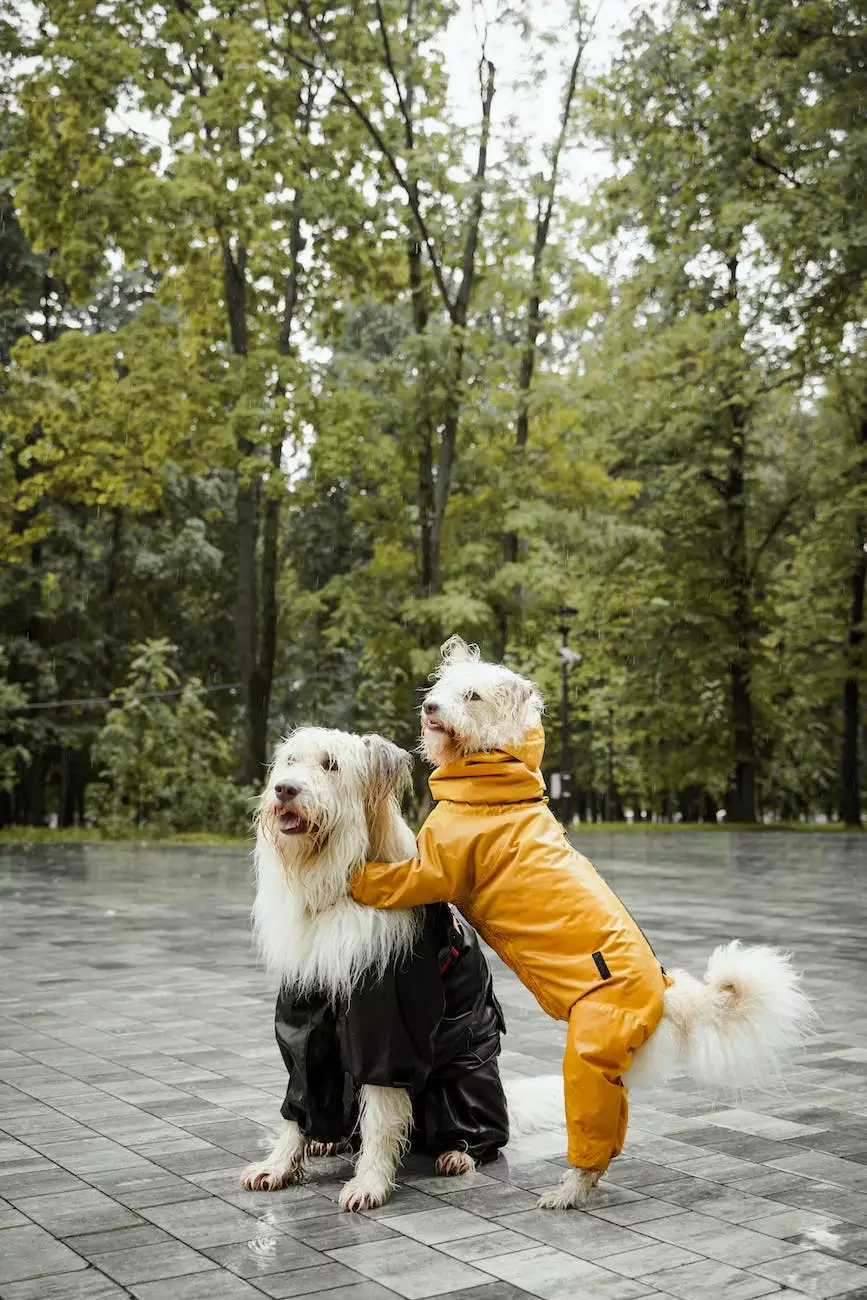Do Dogs Chase Cats?
Blog
Understanding Dog Behavior and the Age-Old Question
As a pet owner, you may have wondered about the question, "Do dogs chase cats?" It's a common curiosity, considering the stereotypical portrayal of dogs relentlessly chasing after cats. In this article, we will explore this topic and delve into the fascinating world of dog behavior.
The Instinctual Nature of Dogs
Dogs have been domesticated for centuries, yet they still retain many of their ancestral instincts. One of these instincts is the prey drive, which is the natural inclination to pursue and capture prey. While pet dogs may not necessarily rely on hunting for survival, this instinct can manifest in various ways.
When it comes to cats, the chase instinct is particularly strong in certain dog breeds. Breeds like Greyhounds, Whippets, and Terriers were originally bred for hunting small game, including cats.
Factors Influencing Dog Behavior
While some dogs may exhibit a strong desire to chase cats, it is important to note that not all dogs are the same. Several factors can influence a dog's inclination to chase, including:
- Breed characteristics
- Early socialization
- Training and obedience
- Past experiences and conditioning
Breed characteristics play a significant role in a dog's instincts. As mentioned earlier, certain breeds have a higher prey drive than others. However, it's important to remember that each dog is an individual, and their behavior can be shaped through proper socialization and training.
Early socialization is crucial in developing a dog's behavior around cats and other animals. By introducing puppies to cats in a positive and controlled environment, they can learn to coexist peacefully without resorting to chase behavior.
Training and obedience also play a vital role in managing a dog's response to stimuli, including cats. Teaching commands like "leave it" or "stay" can help redirect their attention and prevent chasing behavior.
Past experiences and conditioning can also impact a dog's behavior towards cats. If a dog has had negative encounters or been chased by a cat in the past, they may develop fear or aggression towards cats, leading to a chase response.
Managing Dogs and Cats in the Same Household
If you have both dogs and cats in your household, it is essential to establish a safe and harmonious environment for all pets. Here are some tips to help you navigate this dynamic:
Gradual Introduction
When introducing a new dog or cat to the household, make sure to do it gradually. Provide separate spaces initially, allowing them to familiarize themselves with each other's scent before any direct interactions.
Supervised Interactions
Supervise all interactions between dogs and cats until you are confident in their behavior. Use positive reinforcement techniques to reward calm and friendly behavior from both pets.
Training and Command Recall
Train your dog to respond to commands like "leave it" or "come," redirecting their attention away from the cat if necessary. Provide plenty of mental and physical stimulation to keep your dog's focus on constructive activities.
Provide Individual Spaces
Ensure that each pet has their own safe space where they can retreat to when they need some alone time. This can reduce potential conflicts and stress between dogs and cats.
Conclusion
In conclusion, the answer to the question "Do dogs chase cats?" is not a straightforward yes or no. While some dogs may have a stronger inclination to chase cats, it is important to consider individual differences, breed characteristics, and proper socialization.
At Rosey Dog Care, we understand the complexities of dog behavior and offer expert pet care services in San Diego. Whether you need assistance with training, socialization, or managing multi-pet households, our team of experienced professionals is here to help.
Remember, the key to a harmonious relationship between dogs and cats lies in understanding their natural instincts, providing proper training and socialization, and creating a safe and enriching environment for both pets.




